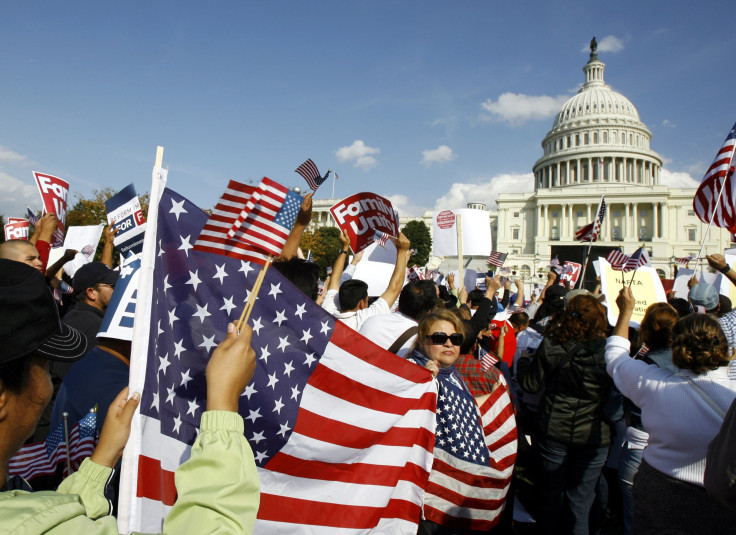Immigration Reform Bill: What Judiciary Committee Members Are Saying

A comprehensive immigration reform bill that was largely overshadowed last week by the bombings in Boston and subsequent manhunt is back in the spotlight Monday as the Senate Judiciary Committee goes to work on the legislation.
The bipartisan "gang of eight" group of senators released the 844-page reform bill last week to both praise and criticize. At the heart of the current debate is how to secure the nation’s southern border and what to do with the 11 million immigrants who either entered the U.S. illegally or simply overstayed their visas.
The proposed immigration reform bill allocates more than $4 billion to improving border security. Undocumented immigrants would also be able to enter a process giving them legal status. The legislation also provides a lengthy time frame for a path to citizenship. Undocumented immigrants will have to overcome several hurdles that include passing background checks, and paying back taxes, fines and application fees, before earning citizenship.
Here’s what some committee members said about the comprehensive immigration reform bill:
-- Sen. Patrick Leahy, D-Vt.: “Immigration reform is a national imperative, and it’s also an opportunity to fix broken parts of the system that are especially important to Vermont. Vermont dairy farmers particularly have a big stake in Congress getting this right.”
-- Sen. Dianne Feinstein, D-Calif.: “[It] is a major breakthrough in the effort to reform our broken immigration system. The plan includes concessions by both sides and includes both a pathway to citizenship and increases enforcement and security at the border.”
-- Sen. Chuck Grassley, R-Iowa, has spoken out against rushing the bill in light of the Boston Marathon bombings: “Given the events of this week, it’s important for us to understand the gaps and loopholes in our immigration system. While we don’t yet know the immigration status of the people who have terrorized the communities in Massachusetts, when we find out, it will help shed light on the weaknesses of our system. How can individuals evade authorities and plan such attacks on our soil? How can we beef up security checks on people who wish to enter the U.S.? How do we ensure that people who wish to do us harm are not eligible for benefits under the immigration laws, including this new bill before us? We have a long road ahead of us to pass legislation to reform our immigration system.” (Grassley made the statement before it came to light that the younger suspect, Dzhokhar Tsarnaev, was in fact a naturalized U.S. citizen, while his brother Tamerlan held a permanent residency permit, the so-called green card, and had applied for citizenship.)
-- Jeff Sessions, R-Ala., who is now seen as a big opponent of the reform bill, has argued that gang of eight’s proposal will affect Americans who earn low wages and immigrants in legal status. “We should work to figure a way to be compassionate and fair to people who have been here a long time," Sessions said, according to ABC News. “But I don’t believe that the nation has any moral -- and certainly no legal -- obligation to provide someone who entered the country illegally every benefit you would give somebody who came legally, so I don't think citizenship should be given.”
-- Ted Cruz, R-Texas, has said he is deeply concerned about providing legal status to immigrants who came to the U.S. illegally. “The part that I’ve got deep concerns about is any path to citizenship for those who are here illegally. I think that is profoundly unfair to the millions of legal immigrants who have followed the rules, who have waited in line. And so, I think the reason that President [Barack] Obama is insisting on a path to citizenship is that it is designed to be a poison pill to scuttle the whole bill, so he can have a political issue in 2014 and 2016. I think that’s really unfortunate.”
© Copyright IBTimes 2024. All rights reserved.












